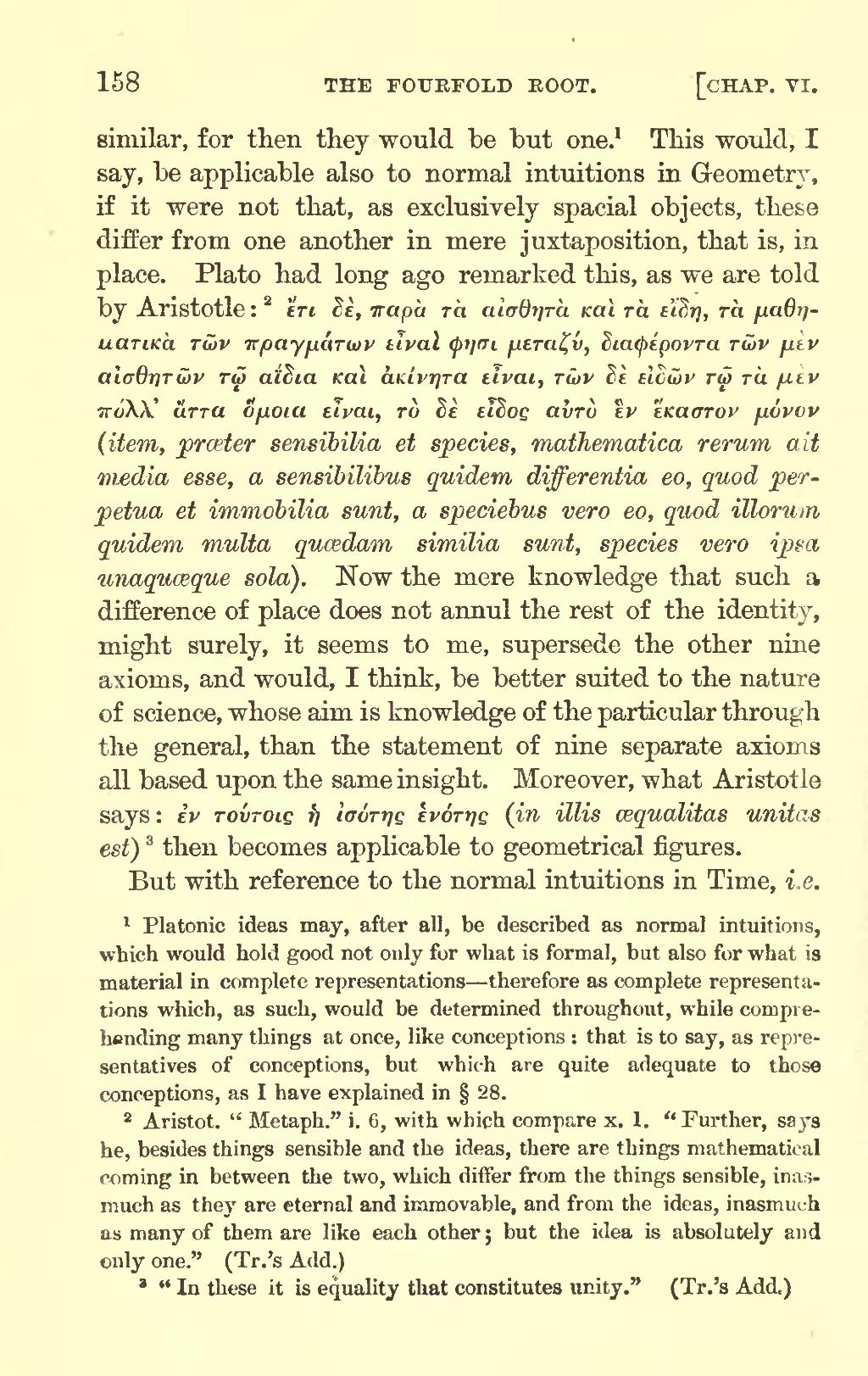similar, for then they would be but one.[1] This would, I say, be applicable also to normal intuitions in Geometry, if it were not that, as exclusively spacial objects, these differ from one another in mere juxtaposition, that is, in place. Plato had long ago remarked this, as we are told by Aristotle:[2] ἔτι δὲ, παρὰ τὰ αίσθητὰ καί τὰ είδη, τὰ μαθηυατικὰ τῶν πραγμάτων είναί φησι μεταζύ, διαφέροντα τῶν μὲν αίσθητῶν τῳ αίδια καί ἀκίνητα είναι, τῶν δὲ είδῶν τῳ τὰ μὲν πόλλ' ᾶττα ὀμοια είναι,τὸ δὲ είδος αύτὸ ἒν ἔκαστον μόνον (item, præter sensibilia et species, mathematica rerum ait media esse, a sensibilibus quidem differentia eo, quod perpetua et immobilia sunt, a speciebus vero eo, quod illorum quidem multa quædam similia sunt, species vero ipsa, unaquæque sola). Now the mere knowledge that such a difference of place does not annul the rest of the identity, might surely, it seems to me, supersede the other nine axioms, and would, I think, be better suited to the nature of science, whose aim is knowledge of the particular through the general, than the statement of nine separate axioms all based upon the same insight. Moreover, what Aristotle says: ἐν τούτοις ἡ ίσότης ἑνότης (in illis æqualitas unitas est)[3] then becomes applicable to geometrical figures. But with reference to the normal intuitions in Time, i.e.
- ↑ Platonic ideas may, after all, be described as normal intuitions, which would hold good not only for what is formal, but also for what is material in complete representations therefore as complete representations which, as such, would be determined throughout, while comprehending many things at once, like conceptions : that is to say, as representatives of conceptions, but which are quite adequate to those conceptions, as I have explained in § 28.
- ↑ Aristot. "Metaph." i. 6, with which compare x. 1. "Further, says he, besides things sensible and the ideas, there are things mathematical coming in between the two, which differ from the things sensible, inasmuch as they are eternal and immovable, and from the ideas, inasmuch as many of them are like each other; but the idea is absolutely and only one." (Tr.'s Add.)
- ↑ "In these it is equality that constitutes unity." (Tr.'s Add.)
